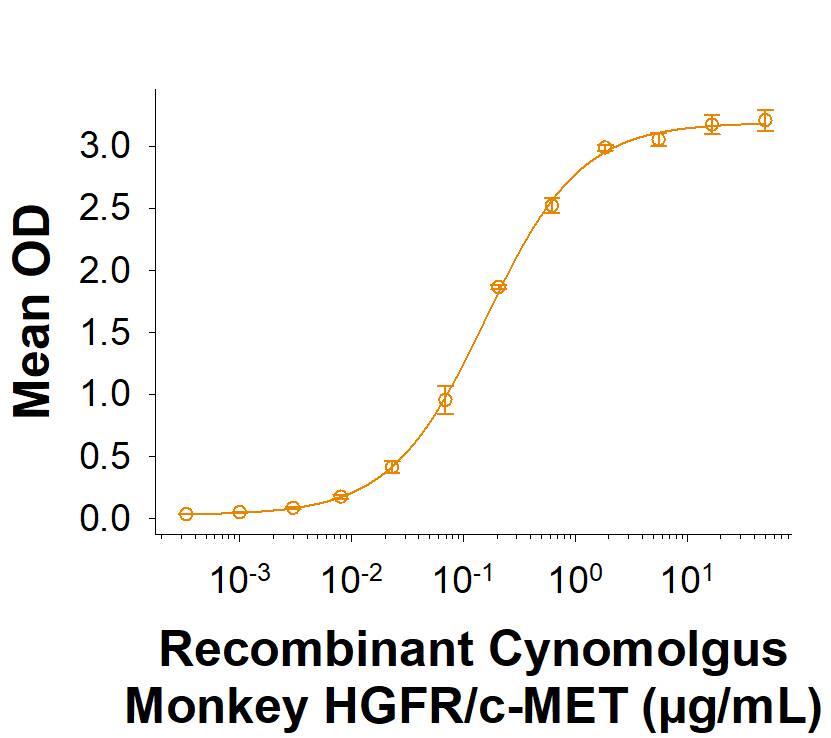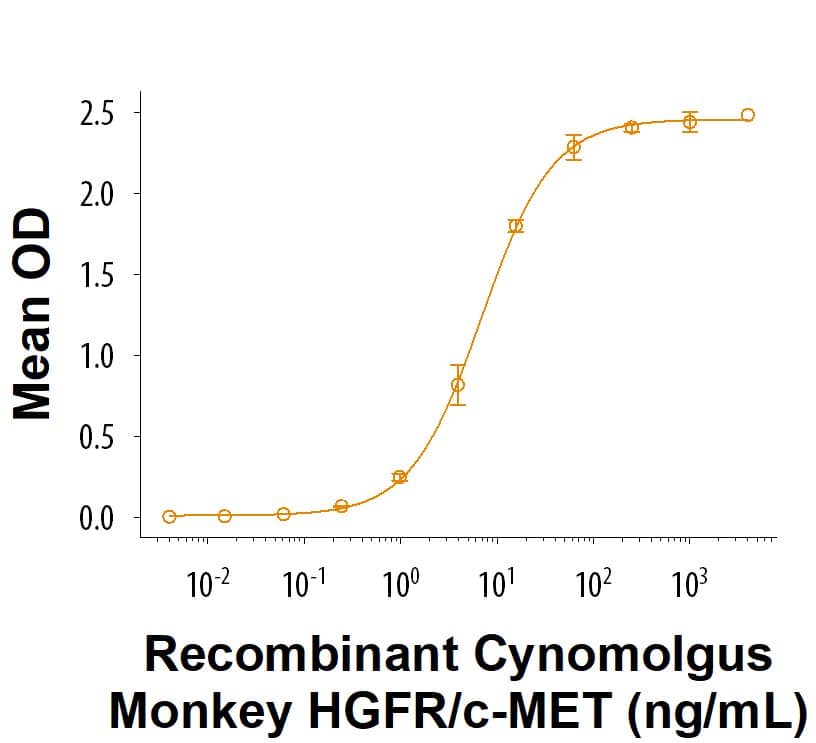HGFR/c-MET: Proteins and Enzymes
HGFR (Hepatocyte Growth Factor Receptor), also known as Met, is a receptor tyrosine kinase that plays a central role in epithelial morphogenesis and cancer development. In the absence of ligand, HGFR forms noncovalent complexes with a variety of membrane proteins including CD44v6, CD151, EGFR, Fas, Integrin alpha 6 beta 4, Plexins B1, 2, 3, and MSPR/Ron.
Ligation of one complex component triggers activation of the other, followed by cooperative signaling effects. Formation of some of these heteromeric complexes is a requirement for epithelial cell morphogenesis and tumor cell invasion. Paracrine induction of epithelial cell scattering and branching tubulogenesis results from the stimulation of HGFR on undifferentiated epithelium by HGF released from neighboring mesenchymal cells.
Products:
9 results for "HGFR/c-MET Proteins and Enzymes" in Products
9 results for "HGFR/c-MET Proteins and Enzymes" in Products
HGFR/c-MET: Proteins and Enzymes
HGFR (Hepatocyte Growth Factor Receptor), also known as Met, is a receptor tyrosine kinase that plays a central role in epithelial morphogenesis and cancer development. In the absence of ligand, HGFR forms noncovalent complexes with a variety of membrane proteins including CD44v6, CD151, EGFR, Fas, Integrin alpha 6 beta 4, Plexins B1, 2, 3, and MSPR/Ron.
Ligation of one complex component triggers activation of the other, followed by cooperative signaling effects. Formation of some of these heteromeric complexes is a requirement for epithelial cell morphogenesis and tumor cell invasion. Paracrine induction of epithelial cell scattering and branching tubulogenesis results from the stimulation of HGFR on undifferentiated epithelium by HGF released from neighboring mesenchymal cells.
Products:
| Source: | NS0 |
| Accession #: | P08581 |
| Applications: | Bind |
| Source: | HEK293 |
| Accession #: | EHH52447.1 |
| Applications: | BA |
(HEK293-expressed)
| Source: | HEK293 |
| Accession #: | P08581 (HGF R alpha ) & P08581 (HGF R beta ) |
| Applications: | BA |
| Source: | NS0 |
| Accession #: | P16056 |
| Applications: | BA |
| Source: | NS0 |
| Accession #: | Q75ZY9 |
| Applications: | Bind |
| Source: | HEK293 |
| Accession #: | EHH52447.1 |
| Applications: | BA |
| Applications: | PAGE |
| Source: | Sf 21 (baculovirus) |
| Accession #: | P16056 |
| Applications: | Bind |
| Applications: | AC |





![SDS-PAGE: Recombinant Mouse HGFR/c-MET hIgG-His Protein [NBP2-77485] SDS-PAGE: Recombinant Mouse HGFR/c-MET hIgG-His Protein [NBP2-77485]](https://resources.bio-techne.com/images/products/Recombinant-Mouse-HGFR-c-MET-hIgG-His-Protein-SDS-Page-NBP2-77485-img0001.jpg)